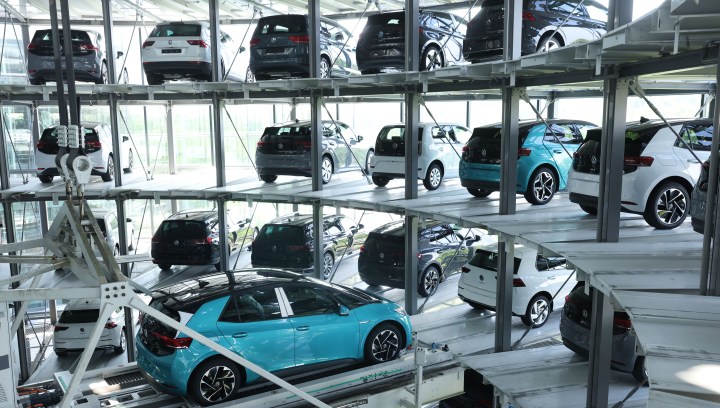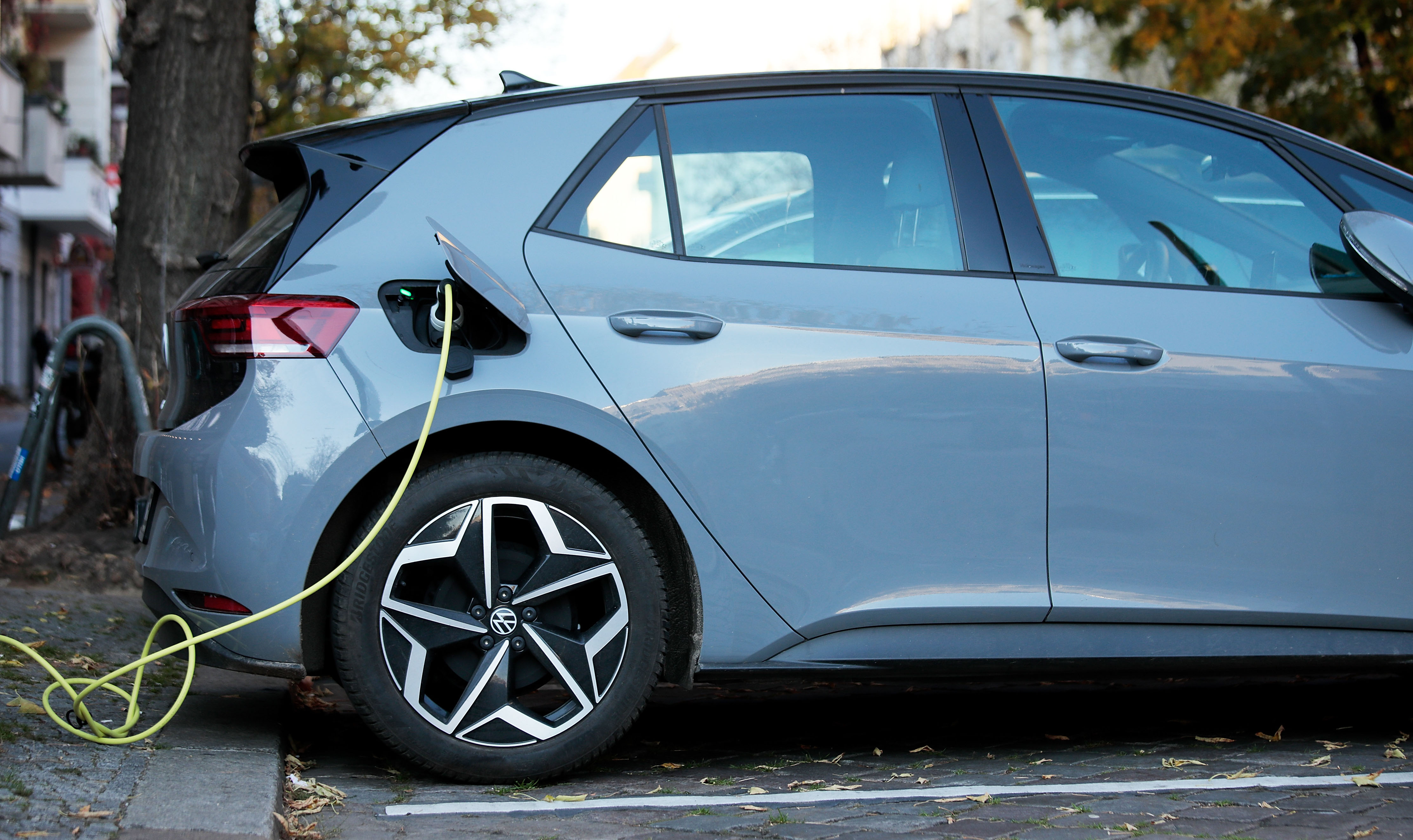VROOM WITH A VIEW
EU’s big brawl over e-fuels: What’s wrong with liquid sunshine anyway?

The future of mobility will play out this week in the European Council and, as a result, as you can imagine, there’s frantic lobbying and heavy pressure. At stake is the final step in the EU’s complicated legislative process on environmental regulations, which starts out as a proposal by the commission, goes through various bodies such as the Environment Committee and the plenary and then – as it will on Tuesday – ends up in the council, where the EU member states will vote to either support the bill, or not.
Generally, this last step is a formality, as the Members of the European Parliament who ushered the text to this point are drawn from those governments – but politics is politics and the EU’s quest to phase out the sale of internal combustion engines (ICE) by 2035 is enormously consequential, not only to the motor companies, but also to the unions and the various powerful lobbies in the component manufacturing space.
And so, much to everyone’s surprise, into this fray on Monday last week stepped Christian Lindner, the German Finance Minister and member of the German Liberal Party, pulling the rug out from under the governing coalition, saying that he would not support the 2035 phase-out unless it included something called e-fuels – dubbed by some as “liquid sunshine”.
From the outside, this is hard to understand. Even from a cynical perspective, when you have the biggest names in German automotive manufacturing – specifically Volkswagen Group and Daimler – out in support of the internal combustion engine phase-out, can this last-ditch U-turn represent the outcomes of lobbying – and, if so, from whom?
The answer, I can only surmise, is what looks like a coordinated attempt from the remaining few German companies that actively oppose the new regulations – namely BMW and Bosch – via their industry body, the VDA, which in the days before Lindner’s volte face, released solid car sales figures (flat growth in an environment of supply chain problems and war isn’t exactly bad news), but framed it as catastrophic.
Anyway, the upshot of Germany’s wobble will play out in the EU council on Tuesday, and the ICE phase-out decisions will be hugely important for us in South Africa, because it will either render our motor industry (7% of GDP, might I remind you) obsolete within a decade, or requiring very fast regulatory change and significant investment and trust from the Original Equipment Manufacturers (OEMs).
This did make me think about e-fuels and South Africa, though.
According to the International Council on Clean Transportation (ICCT), the clever transport scientists and engineers who busted Volkswagen’s dieselgate “defeat devices” in the US, “e-Fuels are produced by electricity to split water into hydrogen and oxygen. The hydrogen is then combined with carbon dioxide to make drop-in hydrocarbons like diesel, gas (methane), or jet fuel”.
Some car companies love e-fuels because they can continue to do what they’re good at, which is building internal combustion engines and cars, and can swerve the hideous costs and disruption the electric transition represents in terms of new supply chains, skills and infrastructure.
They argue, correctly, that if they’re made with renewable energy, e-fuels produce almost zero carbon.

An electric VW ID.3 car charges at a public charging station on 29 October 2021 in Berlin, Germany. (Photo: Carsten Koall / Getty Images)
Environmentalists, on the other hand, hate e-fuels because while they are near carbon neutral in a clean energy environment, they are hugely inefficient – requiring four times more energy to drive a kilometre than a standard electric car.
They say, also truthfully, that this is a grotesque waste of renewable resources when electric cars are cheaper and more efficient to build and run.
E-fuels, they say, with their expensive and inefficient production, ought to be used in applications where non-internal combustion solutions are harder to find, such as in shipping and aviation.
And so this seems to be the nub of the matter in Germany.
BMW and friends doesn’t want to be forced down the “all-in” electric vehicle (EV) road with all its complexity and costs when it sees near carbon neutral internal combustion solutions, and environmentalists and some regulators want a more efficient use of scarce renewable resources and, ultimately, want the car companies to stop building internal combustion engines globally, where pollution from particulates and NOx kills hundreds of thousands of people every year.
Certainly, on the surface of it, the e-fuels idea seems attractive in markets like ours as a simpler way out of the carbon emissions mess, but ultimately I can’t see it working, for two reasons.
First, you need renewable energy to get the carbon advantage, and we’re a long way from that.
I’m aware, of course, that clever types will point out that EVs will also run on our dirty electricity, but as I’ve pointed out, you need four times as much energy (with associated 4x emissions) to drive a kilometre with e-fuels than you would with an EV.
And, as has been pointed out by the ICCT until they’re blue in the face, EVs running in dirty energy environments like ours are still less environmentally harmful that an ordinary petrol or diesel car and, more importantly, remove harmful pollution from urban air.
The second reason e-fuels will not work in SA is, in fact, a universal problem: they are going to be too expensive.
That might well be okay for the very low-volume manufacturers that have negotiated an extension from the EU’s 2035 deadline.
Driven by Italy, this can really be seen as them looking out for Ferrari and Lamborghini and so forth, so the costs of e-fuels will not likely bother their owners.
For the ordinary motorist, though, the fear is that e-fuels-fuelled cars could cost as much as three times as much to run. When the costs come through the system, EVs will be so much cheaper to run that it’s hard not to conclude that the whole topic is a wasteful cul-de-sac.
You can worry about Germany and France, but in South Africa it simply makes no sense – there is no carbon upside, and the costs to the average motorist will be simply prohibitive, contributing to inflationary pressures on everything we do and buy.
So, watch the EU carefully this week – it has implications for us in SA.
There is a giant internal fight going on – as much between the car companies themselves as between the different political positions in the EU and Germany.
With VWAG, Ford, Daimler and Volvo firmly supporting the regulations – and with BMW and Toyota opposing them – and with Stellantis flouncing out of ACEA, the European manufacturers association, altogether, it’s clear that the great disruption of the motor industry is creating great pressure on politicians and auto executives alike. BM/DM
Alexander Parker is a journalist, author and consultant.





















 Become an Insider
Become an Insider
Actually the horse has already bolted, it is just that some of the car companies cannot see it yet. In 2013 Elon Musk said that his target was 50% of new car sales to be EV and he thought it would take about 13 years to achieve that. If one looks at the new EV sales trends today in China, Europe and America (the major markets) it is easy to see that we have started the steep rise of the adoption s-curve and that in about 2026/2027 we will cross the 50% level in those markets. Elon’s projection was very good. By 2035 more than 80% of new car sales will be EV in those markets. All European new car manufacturers that have not transitioned will be up the proverbial creek without a paddle. E-fuels will not solve their problems.